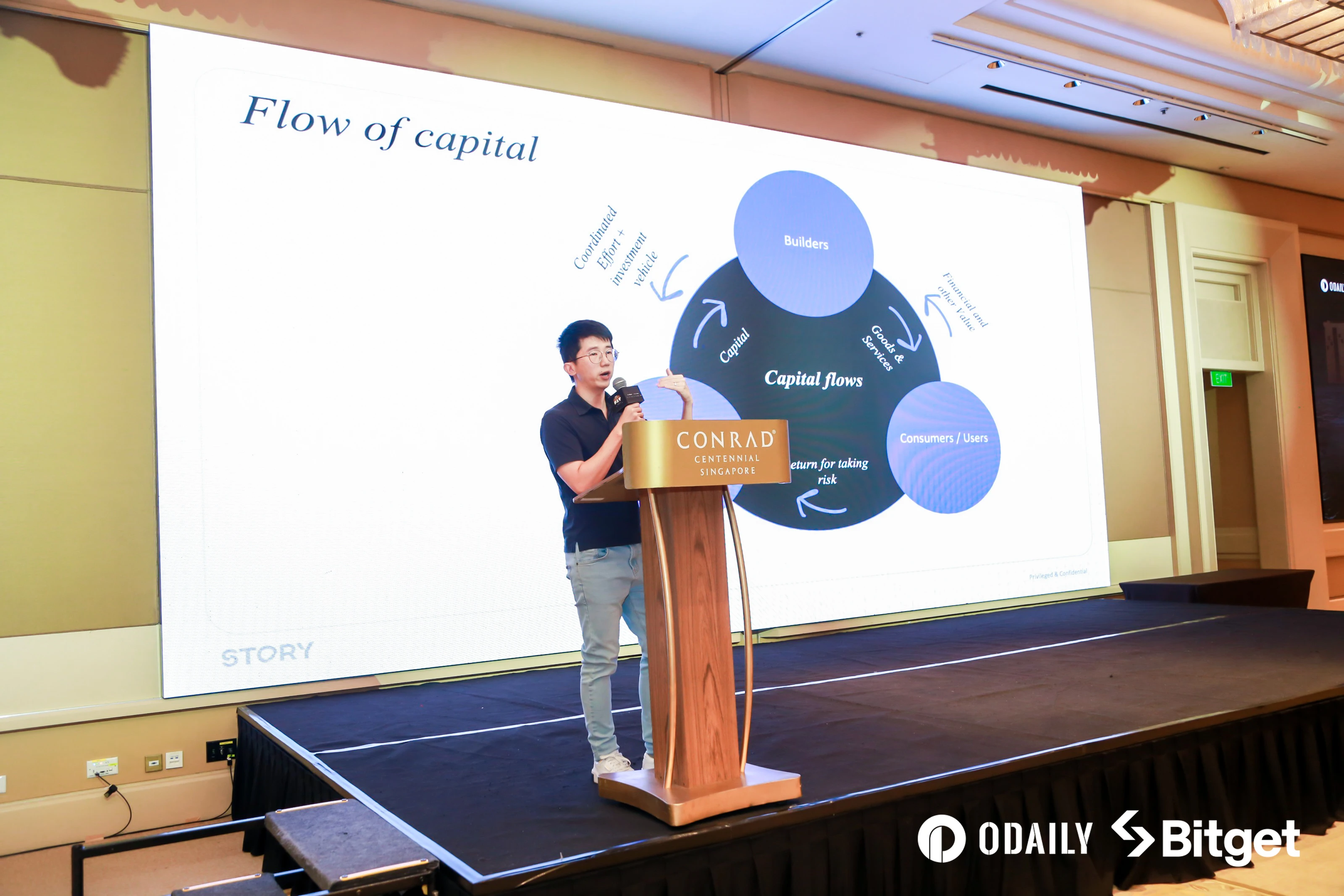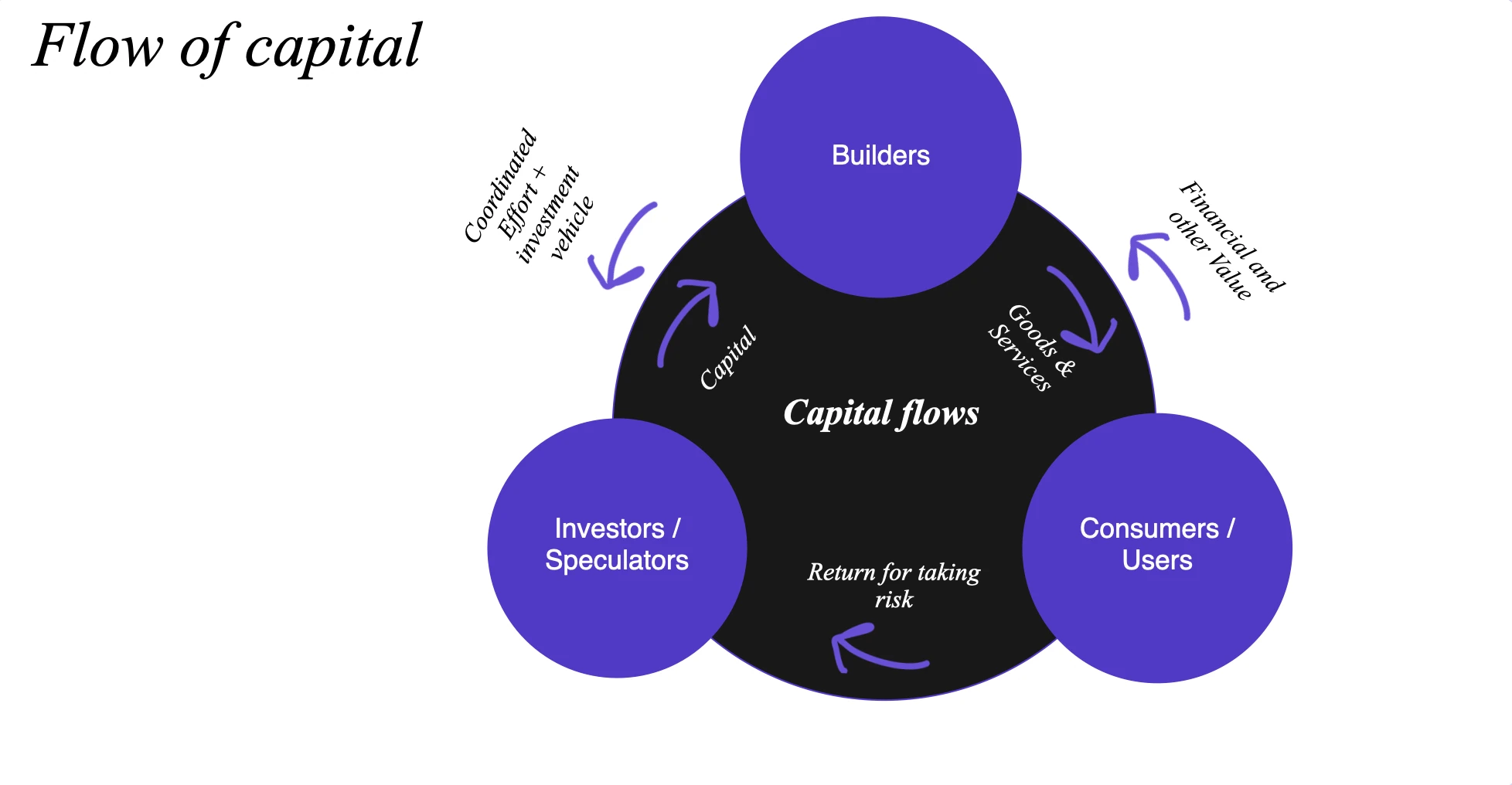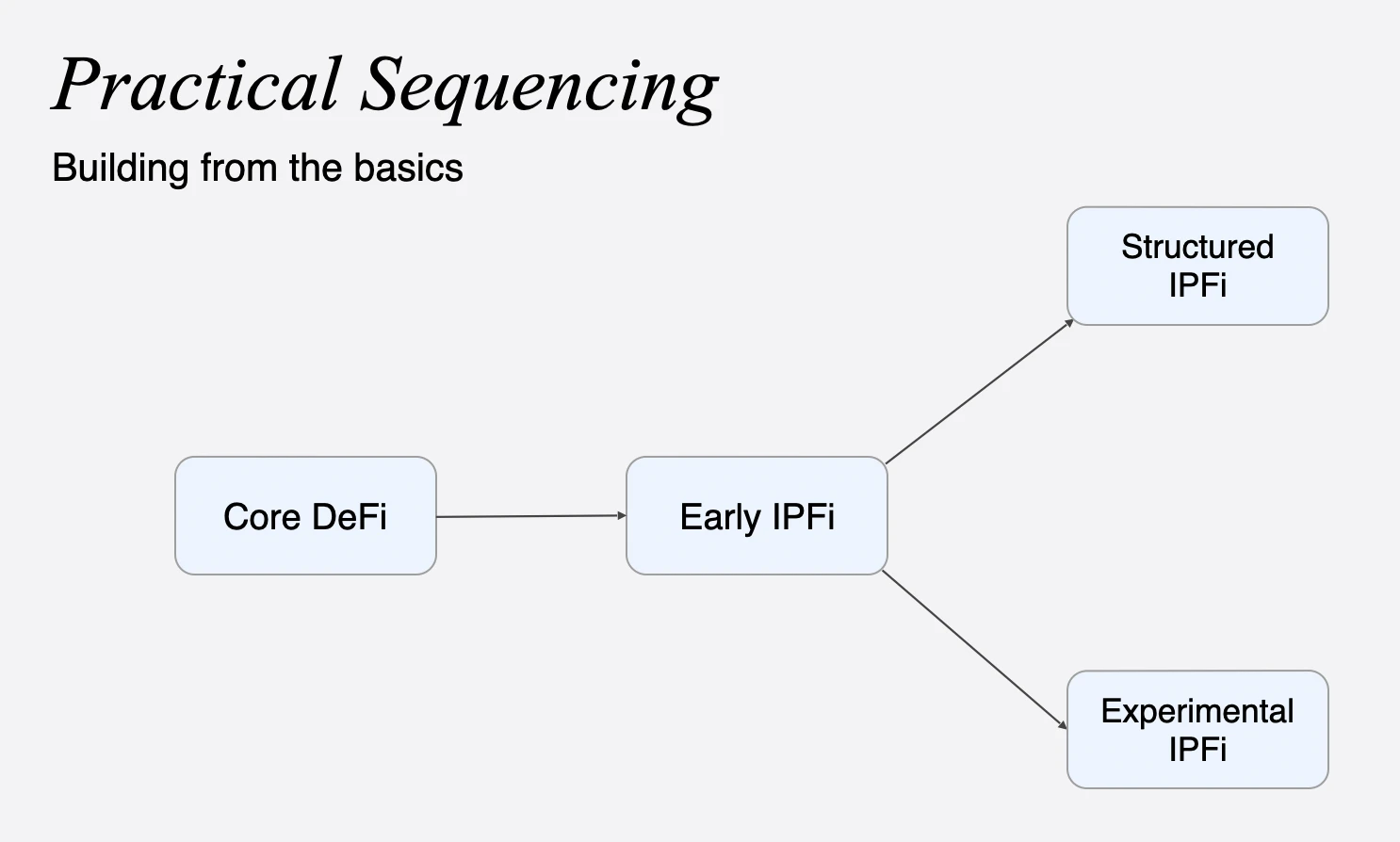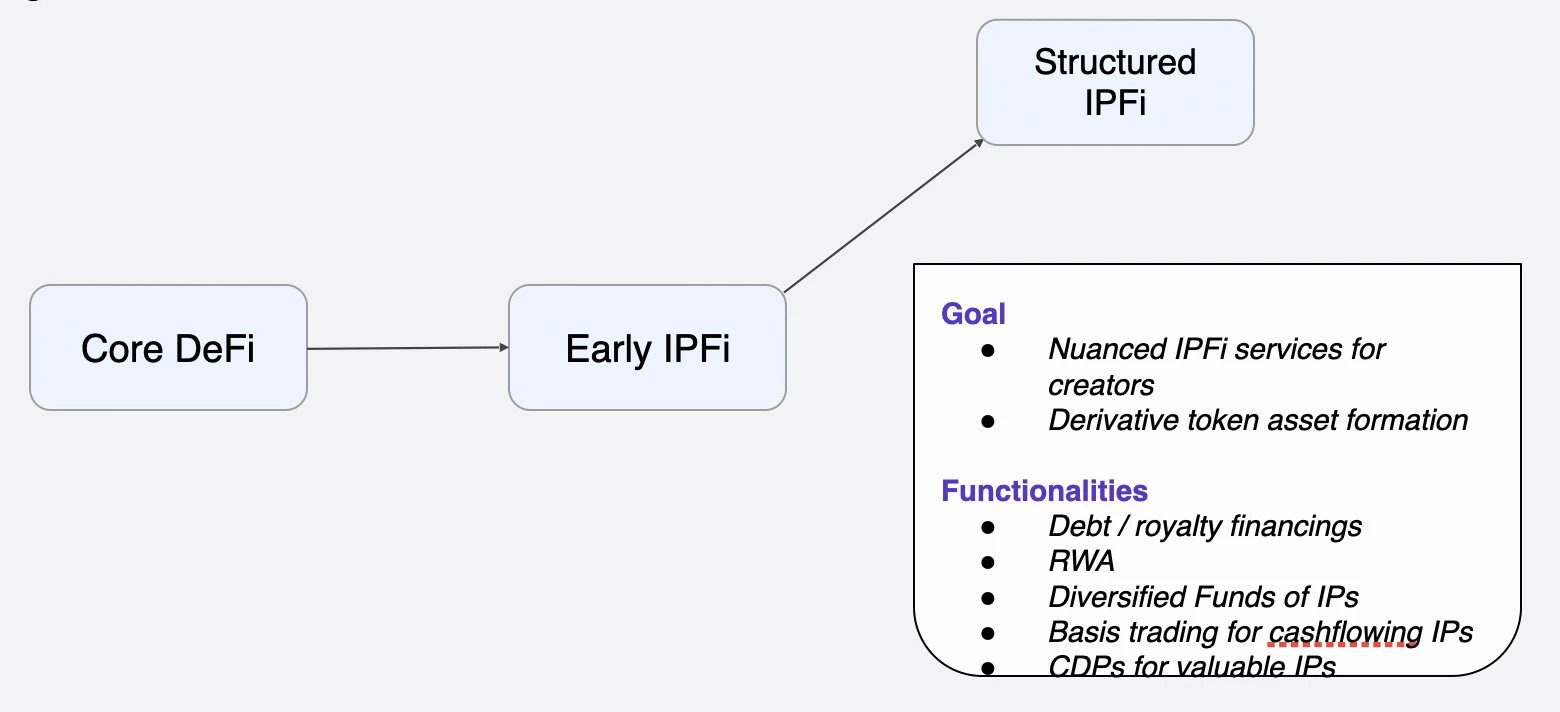Story Protocol BU FAN: Wie wird IPFi den Markt für geistiges Eigentum verändern? AT Awards 2024
Am 16. September wurde die jährliche Zeremonie der FAT Awards 2024 im Conrad Hotel in Singapur feierlich eröffnet. FAT ist eine Marke für Ranglistenzeremonien und Gipfelforen, die 2020 von Odaily Planet Daily gegründet wurde und darauf abzielt, die Führungskräfte und Innovatoren von Web3 und der Kryptoindustrie auszuzeichnen und sich auf Wertparadigmen und Konsensmomente zu konzentrieren. Im Jahr 2024, wenn sich die Kryptoindustrie mit jedem Tag verändert und Narrative von der Mainstream-Welt anerkannt werden, kommen neue Narrative auf, die Ökologie blüht und ein hochwertiges Projekt nach dem anderen gestartet wird. Odaily Planet Daily eröffnete erneut die Auswahl der FAT-Liste und hielt eine Offline-Zeremonie ab.
At the event, Story Protocol Head of IPFi BU FAN gave a speech on the theme of IPFi. Bu Fan defined IPFi as: supporting financial market activities (storing and transferring asset value) in the IP field and building an open and transparent financial ecosystem.
In terms of practice, Bu Fan believes that IPFi has three stages: the first stage still retains the core goals and functions of DeFi; the second stage begins to experiment through new token forms, empowering IP with new tokens and methodologies; the third stage may develop into structured IPFi, concrete IPFi services for creators, with more derivative token forms, or develop into experimental IPFi, providing IP services with purely new mechanisms, focusing on serving the long-term ecological needs of IP.

The following is the full text of BU FANs live speech, edited by Odaily Planet Daily, enjoy~
Good afternoon everyone, I am BU FAN from Story Protocol. Today I hope to share IPFi and its relationship with Story Protocol here.
Story Protocol is a Layer 1 that is about to be launched. We are currently in the testnet stage. Story Protocol focuses on intellectual property (IP), and our goal is to make programmable IP a reality. In the Web2 era, IP is often owned by large companies, and the development rights of IP are restricted by contracts. The change we hope to bring is to use blockchain to make IP affordable and usable by everyone.
Lets say you build a story on Story Protocol and want to make it into a movie, you will be able to register the asset on Story Protocol and define the royalty terms, and if the story is a huge commercial success, you will be able to get 5% of the proceeds – the specific number is set by the IP owner. Our expectation for Story Protocol is that in the future, a large number of IPs will be registered on the chain, and they will all have an open commission relationship. This is called IPFi, and when Story Protocol goes online, financial transactions will occur.
I would like to start the discussion with the role that finance usually plays. Finance is the driving force behind the development of various industries. The role of finance is to provide capital for companies to create goods that consumers want. Crypto is a capital-light industry, and capital formation may not be the focus, but finance still connects investors and users together. For IP assets, this relationship is especially important.
The following figure describes the value circulation cycle of the IP industry, involving three different groups. First, there are creators (builders), who are the group that creates original IP content; then there are consumers (consuemrs), who watch, share and pay for the content; and then there are investors, who provide capital to help create content, just as they invest in major companies.

Between investors and creators, the former provide capital to the latter, and the latter can use the capital to create IP content; between creators and consumers, the former provide content and service value to the latter, and in turn the latter will pay for it; between investors and consumers, the former can get income feedback from the latters payment. The key to the financial system lies in the form of value transfer. The arrows in the above figure clearly indicate how value will be transferred from one place to another.
Now lets get into IPFi. IPFi mainly consists of two elements: one is the asset form of IP, and the other is a strong financial system to ensure the effective transfer of value. Unlike the traditional IP industry where most value transfers occur between entities, Story Protocol hopes to build an open system that allows users to freely create and transfer IP assets.
We need to clarify one question: what specific form will IPFi take at different stages of development?

In our opinion, the first phase of IPFi will still focus on building core DeFi functions. The main goal of this phase is to provide the necessary infrastructure for the creation and value transfer of IP assets, including IP launch platforms, IP asset trading markets, IP asset currency markets, and necessary DeFi incentive plans, etc.
Next, we will enter the early IPFi stage. In this stage, Story Protocol will provide two different but related token types around IP. One is the authorization token, whose main utility is to connect creators with consumers; the other is the royalty token, whose main utility is to realize the flow of IP income. For example, when you hold a royalty token for an IP, if the IP eventually makes a profit in the form of a movie, you will also receive corresponding royalty income through the token. We also hope to conduct some experiments in the early IPFi stage. For example, we believe that everyone who has invested in memecoin can build a community and content around a consensus image and transform it into a real IP project.

In the early stage of IPFi, there are some projects that need to be focused on. In traditional fields, companies with good cash flow prospects in the future often choose debt financing to promote development when expanding their business. However, in the field of IP, such debt financing structure is not perfect. Why do IP creators have to sell their works? In the vision of Story Protocol, a perfect structured IPFi will breed more valuable IP assets.
In the later stages, we need to pay attention to some experimental IPFi. For example, under an open IP registration system, many people will register some junk IPs on the network. In order to serve a small number of truly valuable IP assets, a proof-of-stake mechanism needs to be established. Under this mechanism, people can choose to support the best IP assets to achieve asset quality screening.

In summary, our vision is to create an open value transfer system for IP assets through IPFi, fully protect the legal rights of all participating groups, and allow more users to participate in the system at a lower cost. Currently, most IP creators have not considered how to finance and monetize IP, and Story Protocol will provide them with a convenient and effective solution.
This article is sourced from the internet: Story Protocol BU FAN: How will IPFi iterate the intellectual property market锝淔AT Awards 2024
Related: XEX Markt Observation Report: A review of recent major events in the cryptocurrency space
French President Emmanuel Macron denied rumors that the arrest of Telegram founder Pavel Durov was politically motivated, while cryptocurrency inflows rose for five consecutive weeks amid rumors of a September rate cut in the U.S. Meanwhile, Polygon, Avalanche, and ZKsync were all hit by Discord scam attacks within 48 hours. Macron says Durovs arrest is not politically motivated President Macron confirmed Durov’s arrest in a post on the X social media platform on August 26. In his post, Macron responded to false information circulating on social media claiming that Durovs arrest was politically motivated. Macron said it was in no way a political decision. On August 24, Durov was arrested at an airport outside Paris, sparking rumors of possible charges against him and law enforcement action against Telegram. On August…







